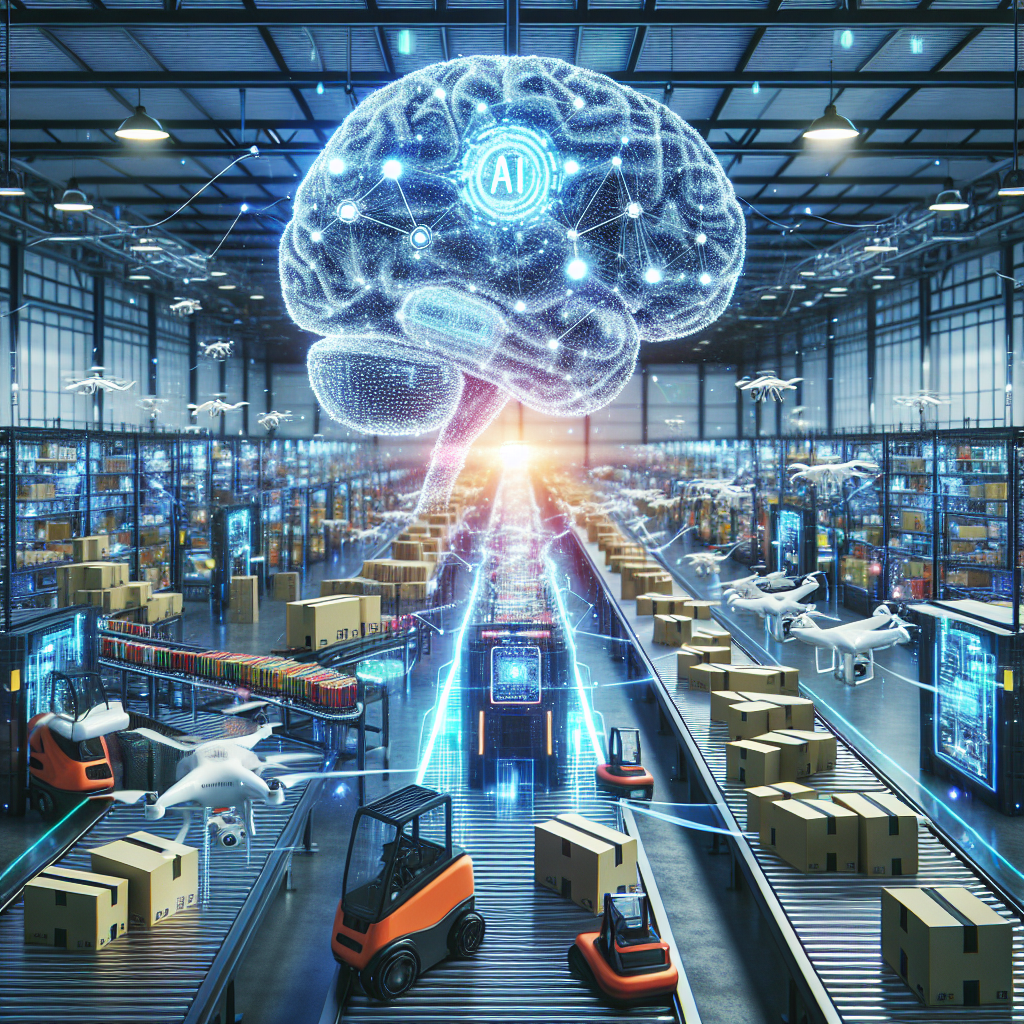The Impact of AI on E-Commerce Fulfillment and Delivery in Logistics
Artificial Intelligence (AI) is revolutionizing the way e-commerce fulfillment and delivery are managed in the logistics industry. With the rise of e-commerce and the increasing demand for fast and efficient delivery, companies are turning to AI to streamline their operations, reduce costs, and improve customer satisfaction. In this article, we will explore the impact of AI on e-commerce fulfillment and delivery in logistics, including the benefits, challenges, and future trends.
Benefits of AI in E-Commerce Fulfillment and Delivery
1. Improved Efficiency: AI algorithms can optimize the fulfillment process by predicting demand, optimizing inventory levels, and routing packages more efficiently. This leads to faster order processing and reduced delivery times.
2. Cost Savings: By automating repetitive tasks, AI can help companies reduce labor costs and improve operational efficiency. This can lead to significant cost savings in the long run.
3. Enhanced Customer Experience: AI-powered chatbots and virtual assistants can provide real-time updates on order status, delivery times, and product recommendations. This improves customer satisfaction and loyalty.
4. Predictive Analytics: AI can analyze vast amounts of data to predict future trends, identify potential issues, and optimize supply chain operations. This helps companies make informed decisions and stay ahead of the competition.
5. Personalization: AI can analyze customer data to provide personalized recommendations, promotions, and discounts. This leads to higher conversion rates and increased customer loyalty.
Challenges of AI in E-Commerce Fulfillment and Delivery
1. Implementation Costs: The initial investment in AI technology can be high, especially for small and medium-sized businesses. Companies need to carefully assess their needs and budget before implementing AI solutions.
2. Data Security: AI relies on vast amounts of data to function effectively, which raises concerns about data privacy and security. Companies need to ensure that they have robust security measures in place to protect customer information.
3. Technical Skills: AI technology is complex and requires specialized skills to implement and maintain. Companies may need to invest in training or hire external experts to manage their AI systems.
4. Integration with Existing Systems: Integrating AI technology with existing e-commerce platforms and logistics systems can be challenging and time-consuming. Companies need to ensure that their systems are compatible and able to communicate effectively.
5. Ethical Considerations: AI algorithms can sometimes exhibit bias or make unethical decisions. Companies need to establish guidelines and protocols to ensure that their AI systems operate ethically and responsibly.
Future Trends in AI for E-Commerce Fulfillment and Delivery
1. Autonomous Vehicles: AI-powered drones and self-driving vehicles are becoming increasingly popular for last-mile delivery. These vehicles can navigate traffic, avoid obstacles, and deliver packages quickly and efficiently.
2. Robotics: AI-powered robots are being used in warehouses to automate picking, packing, and sorting tasks. These robots can work alongside human employees to improve efficiency and reduce errors.
3. Predictive Analytics: AI algorithms are becoming more sophisticated at predicting customer behavior, demand patterns, and supply chain disruptions. This enables companies to make proactive decisions and optimize their operations.
4. Voice Commerce: AI-powered voice assistants like Siri and Alexa are transforming the way customers shop online. Companies are integrating voice technology into their e-commerce platforms to provide a more personalized and intuitive shopping experience.
5. Augmented Reality: AI-powered AR technology is being used to enhance the online shopping experience by allowing customers to visualize products in their own space before making a purchase. This reduces returns and improves customer satisfaction.
FAQs
Q: How can AI improve order accuracy in e-commerce fulfillment?
A: AI algorithms can analyze customer data, inventory levels, and order history to predict demand and optimize order fulfillment. This leads to fewer errors and improved order accuracy.
Q: What are the benefits of using AI-powered chatbots for customer service in e-commerce?
A: AI-powered chatbots can provide instant responses to customer inquiries, track order status, and provide personalized recommendations. This improves customer satisfaction and reduces the need for human intervention.
Q: How can AI help companies reduce delivery times in e-commerce logistics?
A: AI algorithms can optimize delivery routes, predict traffic patterns, and prioritize orders based on urgency. This leads to faster delivery times and improved customer satisfaction.
Q: What are some examples of AI-powered technologies used in e-commerce fulfillment and delivery?
A: Some examples of AI-powered technologies used in e-commerce fulfillment and delivery include autonomous vehicles, robotics, predictive analytics, voice commerce, and augmented reality.
In conclusion, AI is transforming the e-commerce fulfillment and delivery process in logistics by improving efficiency, reducing costs, and enhancing customer satisfaction. While there are challenges to overcome, the benefits of AI technology far outweigh the drawbacks. As companies continue to invest in AI solutions, we can expect to see even more innovation and improvement in the e-commerce logistics industry in the years to come.

